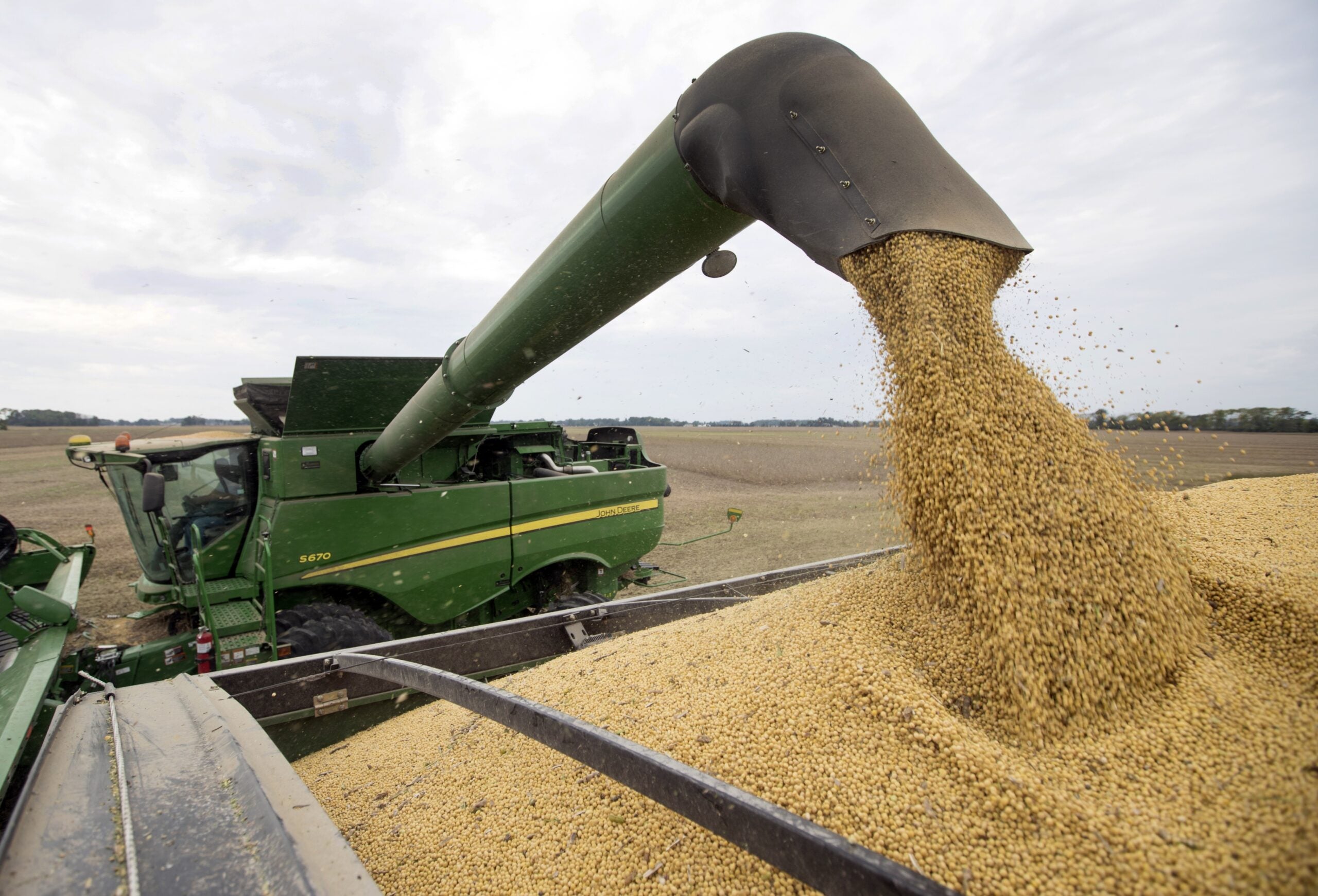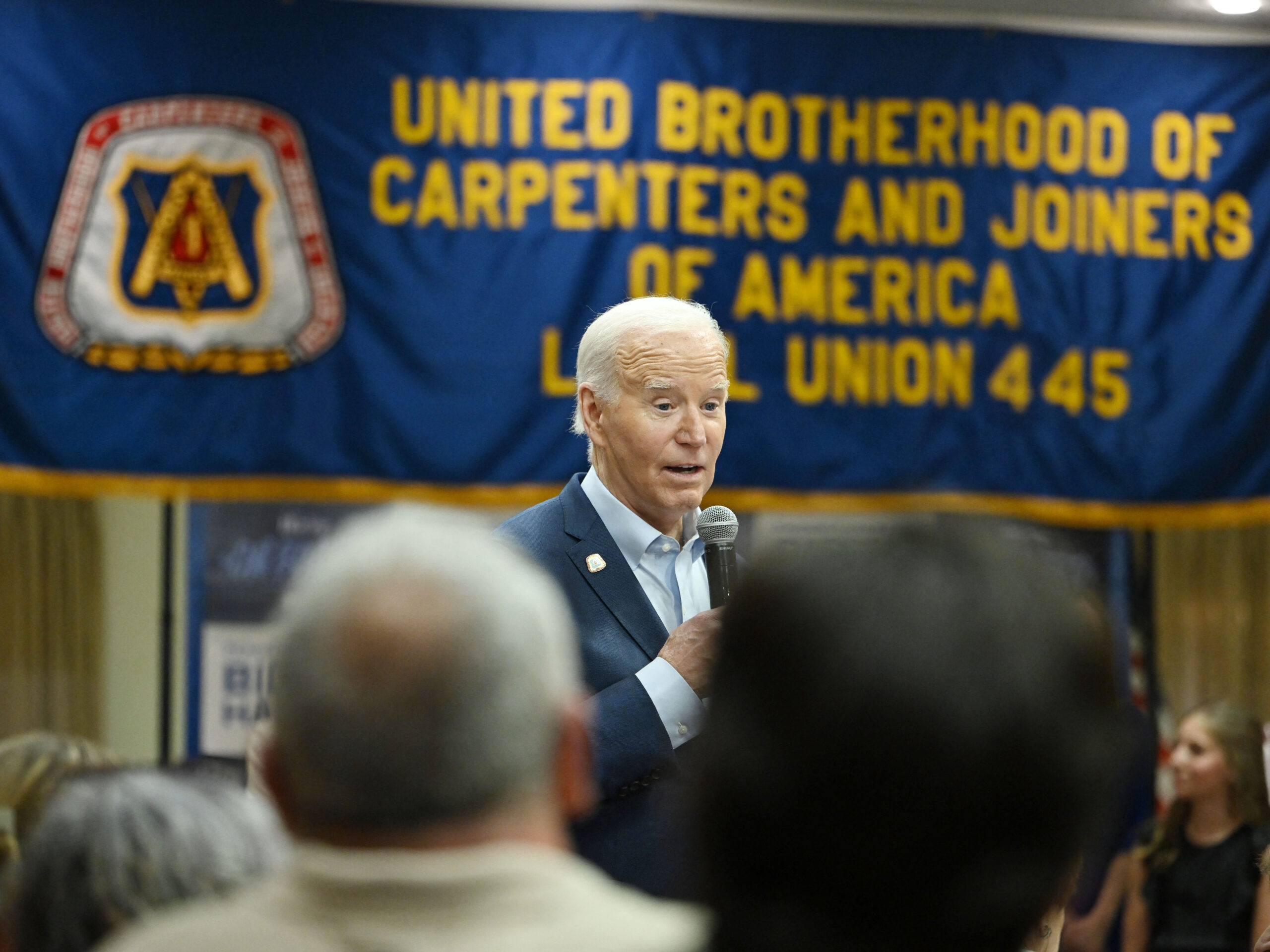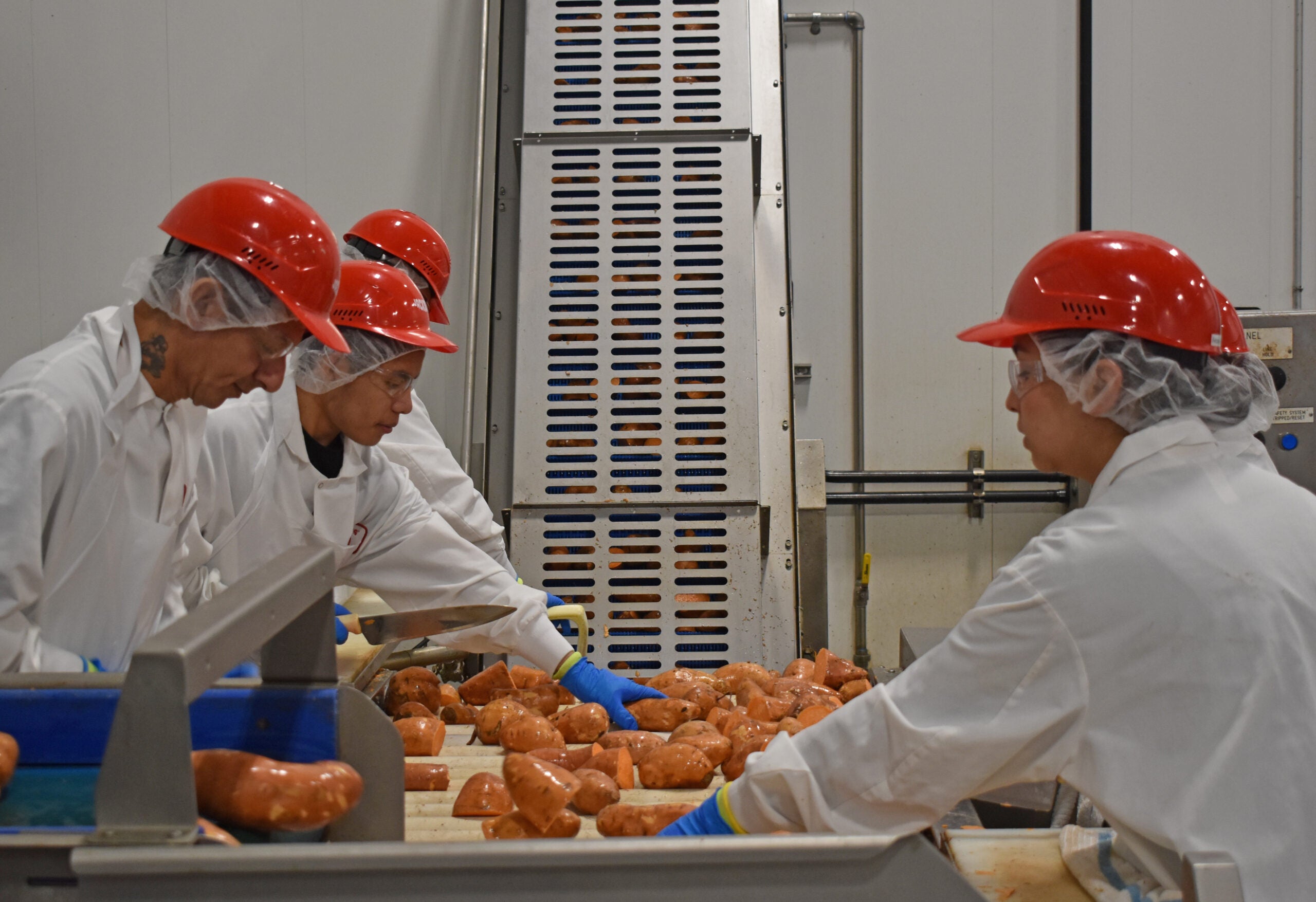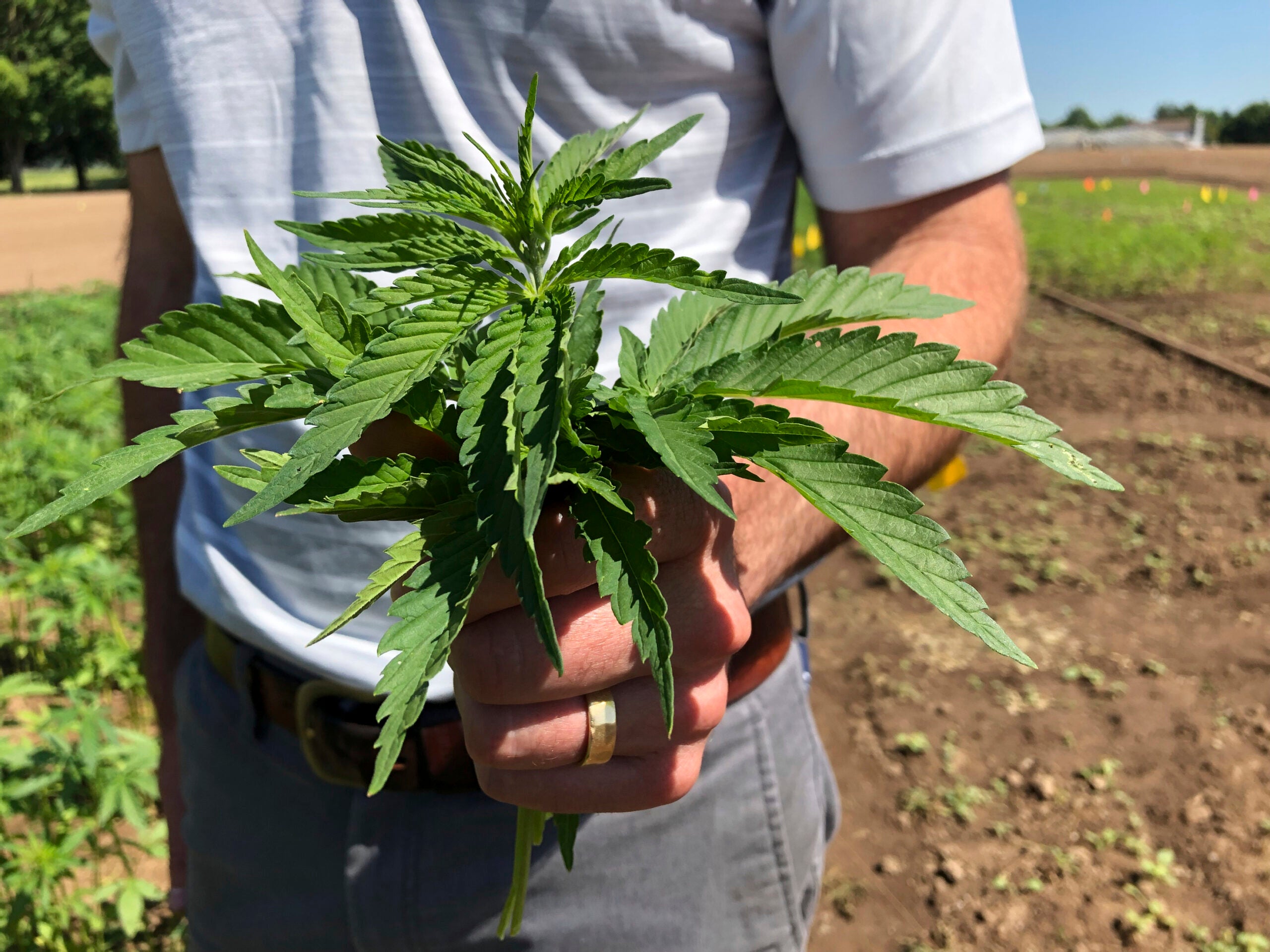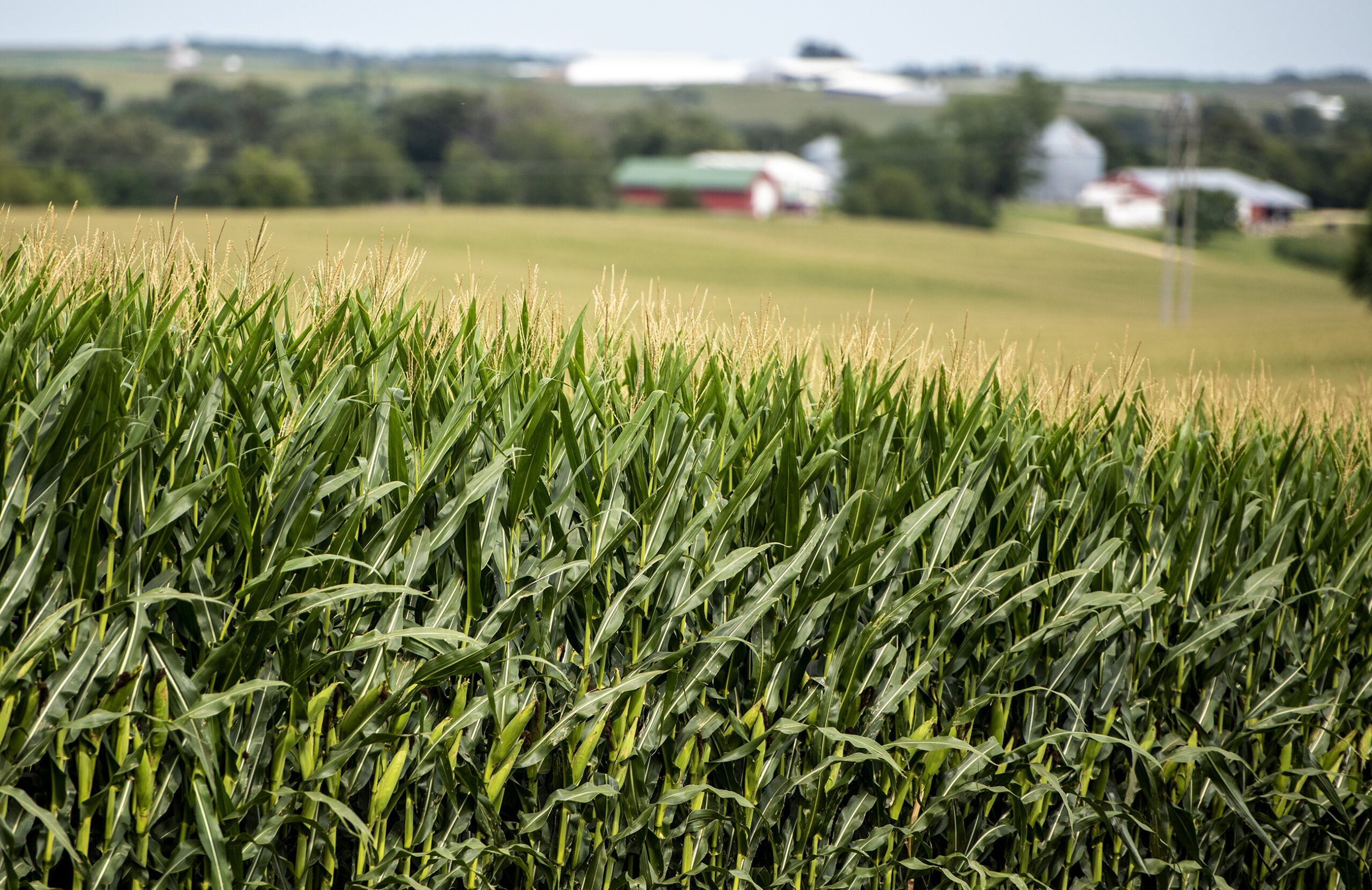Wisconsin farmers are nervous about an announcement from China that it will place tariffs on $60 billion of products made in the United States.
A press release issued by China’s Ministry of Finance says the latest round of tariffs are in retaliation to President Donald Trump’s escalation of tariffs on $200 billion of goods from China. The release said more than 5,000 U.S. products will see tariffs between 10 percent and 25 percent.
For farmers in Wisconsin the news compounded an already tough economic outlook. Wisconsin Soybean Marketing Board executive director Robert Karls said impacts from last year’s tariffs on agricultural products like soybeans are already being felt by growers.
Stay informed on the latest news
Sign up for WPR’s email newsletter.
“Well the price has come down some more,” said Karls. “Farmers are concerned. Their bottom line is very, very tight. So, they’re very nervous. There’s a lot to be seen but with what they’re hearing right now they’re concerned.”
U.S. Soybean futures were trading at $7.86 per bushel Monday. That’s the lowest price in a decade, according to press reports. Karls said with a new round of tariffs on the horizon Wisconsin soybean growers could turn away from the crop and plant other commodities like corn.
“You know, this was supposed to be a short-term pain for long-term gain,” said Karls. “Now it’s turning into a long-term pain. So, this is really affecting their bottom line. It’s affecting what they’re going to be planting, they’re afraid. It’s definitely having a negative impact. You can’t try to pretend that it’s not.”
The Wisconsin Soybean Marketing Board met over the weekend with it’s national partners, said Karls. He said they’re strategy is to push members of Congress to lobby the President’s administration to get trade talks settled between the two countries.
For Wisconsin ginseng producers the story is much the same.
Ming Jiang is the founder of Marathon Ginseng International. He said ginseng has been a symbol of trade between China and the U.S. since the late 1800s. Jiang said his company is already facing tariffs of nearly 40 percent on its product. He said the latest announcement from China could push that to near 60 percent after June 1.
“It creates uncertainty for planning in terms of how much to plant,” Jiang said. “Ginseng is a multi-year plant. You have to plan ahead. As a result we reduced our cultivation by 50 percent last year.”
Jiang said the trade battle has been terrible for business.
“We really don’t know what to expect,” said Jiang. “Hopefully by June 1, the two sides will sign a trade agreement to solve everything once and for all. Otherwise, things will look very dim for us.”
Wisconsin Public Radio, © Copyright 2024, Board of Regents of the University of Wisconsin System and Wisconsin Educational Communications Board.

